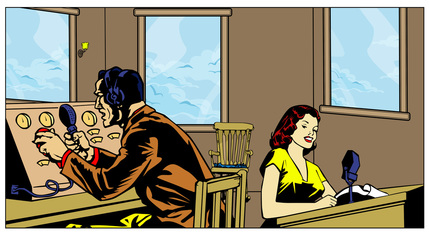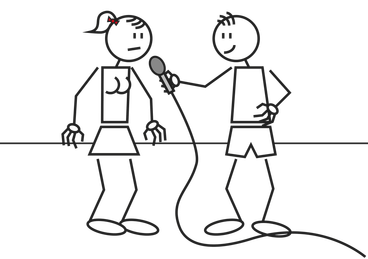|
Tips on Promoting Your Radio Show Warning: This is a rather large blog. You may need some liquid refreshment to make it to the end! In this blog I'll cover: How to target your live radio show to the correct listeners. What to do if you broadcast at a community radio station that has mixed programming and no listeners. Using the listen again feature to attract live listeners Why I recommend Mixcloud to all community radio presenters and podcasters. This blog post has a slight crossover with the "How to Be a Radio Presenter" article. If you haven't read that, then you might want to start with that first. Be warned though, that's also a long read. I'll also mention station formats once more as it's relevant to this post. Part One This is related to radio shows that broadcast live. Part Two This is related to presenters that have no live listeners. Everything in the top half of this blog post will also be related to using your radio shows as 'listen again.' The Two Main Ways to Attract Listeners to Your Radio Show Approach number one is for radio presenters who present live. Strategy number two is for radio DJs who don't have a live audience. In this case, we'll be using the 'listen again' function to attract an audience. Let's start with the live audience first. Attracting Listeners to Your Live Radio Show What is the mission statement of your radio station? If you're broadcasting live, then you'll need to know the demographics of your radio station. In other words, you'll want to know.... Who Are Your Audience? We need to have an idea about who's listening to our station. When we know this, we can target our shows to that audience. Focusing our shows towards a specific audience means we can connect with them better. It also means they'll find us easier. More on this in a moment. Targeting Your Audience Questions You don’t have to remember this information by heart. I just want you to consider these issues when planning a show. How Old Are Your Target Audience? 15-24 25-34 35-44 45-54 65 plus Why Do We Want to Know This? Well, there’s no point trying to do a trans based techno show at a station that only serves elderly listeners. You may love your show, but the audience won't. Why? Because you're not playing the music that they're 'expecting' to hear. In other words, if they dislike your show, they won't listen. I know this sounds incredibly obvious, but guess what? Many new community presenters turn up at a station and then ignore the station's format. Doing this means they end up broadcasting to no one. Broadcasting Tip Broadcast to your 'niche.' If your audience "expects" a gold format etc., then your show needs to provide that same format. The Number One Radio Rule to Understand Join a station that plays music you like. Even if you have to travel further, in the long run, it's better for you and your show. Wait! My Radio Station Doesn't Have a Format O_o We'll get to that in a moment. By the way, here’s a great page from the New York Radio Guide. It describes the different formats in radio. Check it out some time. It’s very interesting. So, Who Are Your Audience? How do you find this information out? Simple. Ask your station manager or the programme controller. Broadcasting Tip Always ask your station manager the demographics of your audience. Once you know this, then the next question is... Where Are Your Audience Located? In a city or a town? In the countryside? In a region? In a local neighbourhood? Or... Are they an online community radio station that broadcasts to a small target area? For example, K2K radio broadcasts to Kilburn and Kensal in the north London area. Croydon Radio (until this year) used to transmit to the local population of Croydon in south London. Does your station broadcast to the whole world? If it does, then who are they targeting? A rock audience, a pop audience, a jazz audience etc. Why Is Locality Important? A locality gives you a reference point for your material. An audience located in rural Wales won't be interested in your associations with Watford. This sounds simple, but you'd be surprised how many new presenters ignore this fact. Local references also help you connect your station to your audience. You don't have to make every reference local, but you have to be aware if you're referencing items that have no connection to your audience. Why It's Good to Know Your Target Audience Knowing your target audience means you can structure your radio show content better. A joke about jazz music theory may work for a jazz-based audience, but it’ll fall flat for listeners who like rock and metal. However, a joke about jazz being lame, boring, nerdy bearded music, will work better on that same rock audience. Breaking Your Listeners Down Consider location, race, age, sex, interest, music, and lifestyle, etc. Points Relevant for Listen Again Podcasts What's the average age of the audience you want to target? What music does your audience like? Be specific. Is it rock from the 1960s to the 90s or is it modern day metal? Consider Your Audience's Gender Is your show predominately male or female in style? If it is gender biased, should you change that? Are you excluding female listeners by being too 'blokey?' Are you excluding male audiences by being too 'girly?' Is your music selection also gender biased? Will this bias exclude some listeners from tuning in? There's no correct answer here; however, these are points worth considering. The best radio DJs incorporate everyone. Get Specific About Your Radio Show I get new radio presenters to ask themselves a question: "What type of radio show do they want to do?" Then I tell them to get specific. Don’t say that you’re going to do a “rock show,” say that you’re going to do a rock show which targets a particular audience. Let's use ROCK as an example :) If you’re going to make a rock show, then make a rock show with a particular slant. A comedy rock show will be easier to find than a generic rock show. There are thousands of generic rock shows out there, but a rock show that only plays music from the 70s to the 2000s will bring the competition down a bit. A rock show that plays music from the 70s to 2000s AND also has comedy will be easier to find than a generic rock show. Broadcasting Tip If you have a plan to attract a certain type of listener, then listeners who are looking for a show like yours will find you easier. Question If your rock show plays all kinds of rock music, then what are you going to do differently to make your radio show stand out? You need to think about these things before you just jump in and start broadcasting. Questions to Ask When Targeting an Audience Does your show have a unique personality? What's different about your radio show compared to the other radio DJs? Will your radio show connect with your audience? Why will your radio show fit the radio station you're approaching? Will your show take your radio station somewhere new? And if it does, how will it do that? What Type of Show Will You Do? A music show. A discussion show. A specialist music or talk show. A political show. A current affairs show. A comedy show. An educational show. An advice show etc. Elements to Consider for Your Radio Show You can: Focus on specialised music for your radio show. Concentrate on live events and gigs. Use on and off-site interviews to add another dimension to your radio show. Use a mixture of all three above. Host a local politics show. One radio presenter at Croydon Radio (before it closed down) did very well with this local politics approach. Her show was different to everyone else. Apart from her, no one else had any interest in the local politicians. As a result of being in this niche, she got a lot of live listeners. She also got a lot of 'listen again' plays via her podcast. The local newspaper then became interested in her show. Why? Because she was the only one interviewing the local Councillors and MP's. Then the local newspaper got involved. This gave her show even more exposure. All of this experience meant she was crafting herself a very impressive broadcasting CV and demo tape. (I have to say I was very impressed!) One Important Point to Note About This She knew her local politics inside out. In other words, she researched her topics extremely well. She knew how to interview, and she knew how to panel a mixing desk. You can have the best content in the world, but if you can't operate a mixing desk, then you'll easily destroy your show. If you want to learn how to use the mixing desk, then click here. You could also host a topical debate show. At a community radio station though, this can be tricky due to limited equipment. However, it's very achievable with live studio guests. Part Two: Listen Again Question What if my radio station doesn't have a format? Answer In this case, we need to work backwards and use the "listen again" function instead. Radio Stations with Mixed Programming While some of you will present at a station that has a distinct demographic (i.e. a hospital radio station, a local FM/AM station, etc.), most of you will probably be presenting on a local internet station. Community Radio Stations in the UK Nowadays, many community radio stations in the UK broadcast to local 'areas' as a service. In other words, they represent the local area first. Community Stations That Provide a Local Service These types of community radio stations are set up to provide a service first and foremost. They don't have a music format or a demographic to adhere to. They offer free or cheap airtime to anyone within the local area. The local community is free to make any radio show they want. While this is very admirable, it often results in terrible 'live' listening figures due to the unstructured nature. For example, the radio station will begin with a rock show; then it'll move onto a poetry show for vegans, and finally, it will end with a Lithuanian jazz-rabbit show for Latvian morris dancers. And on and on this goes. If you're presenting at one of these stations, then you'll know what I mean. "It's Twisting My Melon Man" Because these community radio stations have no structured music 'programming', their output is all over the place. This approach confuses the listeners. They have no idea what the station or the schedule is about. Even worse, these stations don't even group their broadcast days into categories. It would be simple just to make Monday's the rock day, Tuesday's the jazz day, Wednesday's the vegan poetry day etc. At least the listeners would know when to tune in. Anyway, I've digressed and will cease this rant now lol. Let's move on! It's Not All Doom and Gloom for Your Radio Show While this mixed programming approach is not ideal for attracting 'live' listeners to the station, it’s not that bad when it comes to creating your show. These format free stations mean you can create whatever radio show you want to. And this can be incredibly liberating. The Good News About Stations With Mixed Programming If your station is like this, then you need to consider the audience perspective slightly differently. In this case, we make the show for ourselves first. Then we have to find our own audience online. Again, it comes back to targeting. You must know who you're making the show for. Don't make a self-indulged radio show only for yourself. Have an audience in mind. Use the Community Station to Record Your Show The Good News You can use your community radio station as a place to record high-quality radio shows/podcasts. Because your show will be recorded in a real radio studio, it will 'probably' sound much better than a home recording. This is important. Too many shows have poor audio quality. Poor audio quality makes for an unenjoyable listening experience. Master the Mixing Desk By the way, this means you have to master the mixing desk. You can ruin a great show by operating the desk badly. I have two, free video tutorials on the mixing desk. To watch them, just pop over to my four-step "How to Be a Radio Presenter" course. Meanwhile..... You may only be broadcasting to three people live; however, your radio show will still have a live feel. It means your 'listen again' recording will also have that 'live feel.' Edited shows/podcasts lose this vibe. Recording Your Radio Show As Live One of my students broadcasts a radio show from his wardrobe. He always records his shows 'as live', and that includes leaving in mistakes. You can read the blog here. Make Use of All the Incoming Lines When using the station to record your radio shows, you can also have guests contribute through telephone lines, Skype etc. Make use of these incoming lines. The Pros of a Mixed Programming Radio Station While your show won’t target your ‘natural’ station’s audience (because your radio station lets anyone do what they want = no one is listening), you can still record a high-quality live, show. Once you've recorded your show, your next step is to upload it to your "Mixcloud" etc. account. Then you can start to promote your show via social media. You can also embed your shows onto your website and blog around the shows. IMPORTANT COPYRIGHT INFORMATION DO NOT PUT ANY HOME RECORDED SHOWS (WITH YOUR OWN CD COLLECTION) UP ONLINE BY YOURSELF. You haven’t paid for the rights to broadcast the music. Use a site like Mixcloud. Broadcasting Tip Make sure your upload account allows you to have copyrighted music on it. In other words, the company that hosts your shows pays the music royalties for you. If it doesn't, you could get sued for copyright infringement. If in doubt, email them. I recommend Mixcloud to all my radio students. Mixcloud pays the music royalties. You can also easily embed your radio shows onto your website. Sharing your show on social media is easy as well. Just to Note: With Mixcloud, your shows can only be streamed and can't be downloaded. Disclaimer As with all these sites, do read their website first. Terms and conditions are always changing. Live Streaming Your Radio Show Is an Added Bonus If your station streams live, you can still tap into an audience that's not part of the station's local demographic. You can do this by attracting listeners via your listen again shows. Example One of my old trainees does a soul show at a community station in London. His niche was getting high-quality interviews with famous soul musicians. The station he was at, was not a soul station. It was a community station that had mixed programming. Nobody listened live to the station. By placing his “as live shows” on Mixcloud and then sharing them via Facebook and Twitter, he began to build up a good audience. It took a lot of time, but week in and week out, he slowly built an audience. Every time he recorded a long-form interview with a famous soul musician, he would announce it on social media. Example "On Tuesday, I'll be talking to so and so from this super famous band etc." (Ok, I know nothing about soul music!) When he trailed and promoted in advance, some people would tune in live to his show. If they didn't, then they would favourite his tweet. Then they'd wait for him to share his Mixcloud show on social media. Using Your Listen Again Shows as a Demo His next step will be to take these listen again shows to a professional soul station. He's now created himself an impressive portfolio of work. Will he make it? Who knows? However, if you're the station manager of a radio station, who are you going to employ? A radio presenter that has just finished a college course or a radio DJ that already has a social media following? Make Every Show the Best It Can Be Just do this. It will help you long term. Only Put Your Best Shows Up Online Don't put your early shows up online. They'll sound amateurish. Wait until you know what you're doing first. If you could only play two guitar chords and couldn't sing to save your life, would you play a gig in front of thirty people? No. Why? Because everyone would laugh at how bad you were. It's the same with radio presenting. WAIT..until you're good before you share your radio shows to the world. There's no rush here. Don't Lose Potential Listeners by Broadcasting Crap Don't lose future listeners by putting crap shows up online. I understand you're enthusiastic and want to share your passion - but take a deep breath and be brutal. Ask yourself, is your show any good? If it's not okay, then wait until it is. Trust me; practice creates awesome shows. Make all the mistakes on your earlier shows first. Learn from these mistakes and then create great shows. Once a listener has heard a crap show once, chances are, they won't come back. Don't lose the audience before you get good. It Takes Time and Dedication There's no fast fix here. It takes time and constant dedication. It's the same with this website. Day in and day out, I crack on with blogs etc. No one knows me, and no one can find me online. Do I care? NO! I'll just keep cracking on! My goal is to provide you with AWESOME radio content. Your goal is to provide the world with an AWESOME radio show. One day in the future, people will know us. However, if we stop or give up, we'll lose that momentum. SO... Keep plugging away. By the way, check out this motivational video here. It will put fire into your belly. Listen Again Recap Use your community radio station as a place to record your shows live. Build up your listen again audience by using social media. Target people who would be interested in your show. However, make sure you have something good to offer. Once you have a great portfolio (and this will take time), approach professional radio stations for a paid job. Overall Recap As obvious as it sounds, find a station that fits your vision. Tailor your show for the station’s demographic. If they want a “gold” format, then provide a gold format. If you’re at a mixed programming station, then use the station as a place to record your shows professionally. Next, target your audience on listen again. This means finding your own demographic online Upload your shows to Mixcloud etc. and then add tags. Share the show in numerous radio Facebook groups, across Twitter etc. (with radio and music hashtags) and in other forms of social media. If you use Mixcloud etc., then you can link your shows to your own website. Doing this means you can build a personal website around your content. Finally, have fun! Radio presenting is a LOT of fun! Don't forget this point. Learn where to find show ideas. Discover how to show prep like a pro. Master the mixing desk. What it is, how it works and how to use it. Discover what you shouldn't do as a presenter. Ashley Cowan runs the Online Radio School where he tutors in radio presenting and media interviewing techniques. He was a BBC World Service, Radio studio manager for nine years. He was also the station manager for Radio Kings, the hospital radio station for Kings College Hospital. Other crimes include being the training manager for K2K Radio & Whitechapel AM. As a radio presenter, he's hosted radio shows on three FM stations. That was back in the day when FM radio was a big deal. The poor radio stations that had to put up with his brand of terrible comedy were: Radio DÅB, FLR 107.3 FM, and City FM. Radio DÅB had 100,000 listeners! Woo! When he's not writing about himself in the third person, then he was also a community radio DJ at Radio Kings, TGR Sound, Sydenham Radio, and Croydon Radio. He once did production work for Total Rock.com. That was a fun station with a cool owner and a great broadcast team! Brown fizzy water often accompanied the broadcasts! In his spare time, he's London Irish (so he likes a beer). He's recently created an online "Fingerpicking for Guitar" course. There he teaches the art of fingerpicking for... erm...guitar. Students can learn twenty different fingerpicking styles for their chords. Comments are closed.
|
Ashley..
is an ex BBC, radio studio manager, and the ex manager of Radio Kings, the hospital radio station for King's College Hospital. He's presented on three FM stations and waaay too many community stations. Archives
May 2020
Categories
All
|
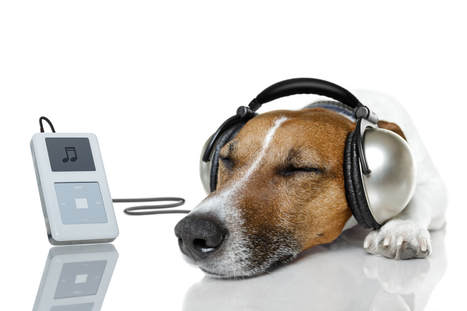

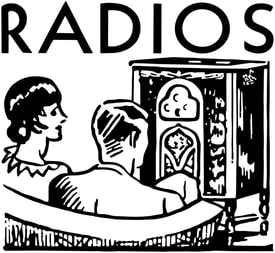
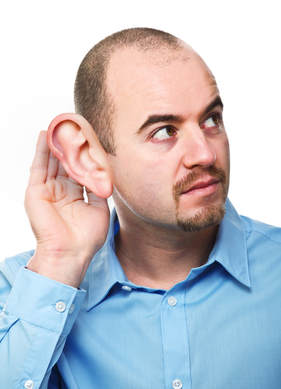

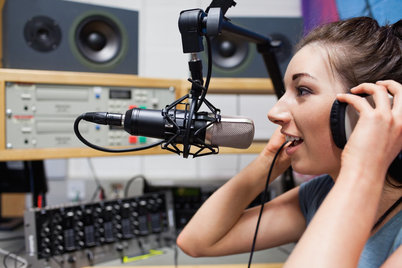
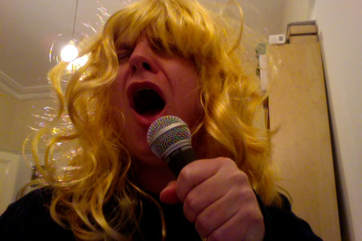
 RSS Feed
RSS Feed
